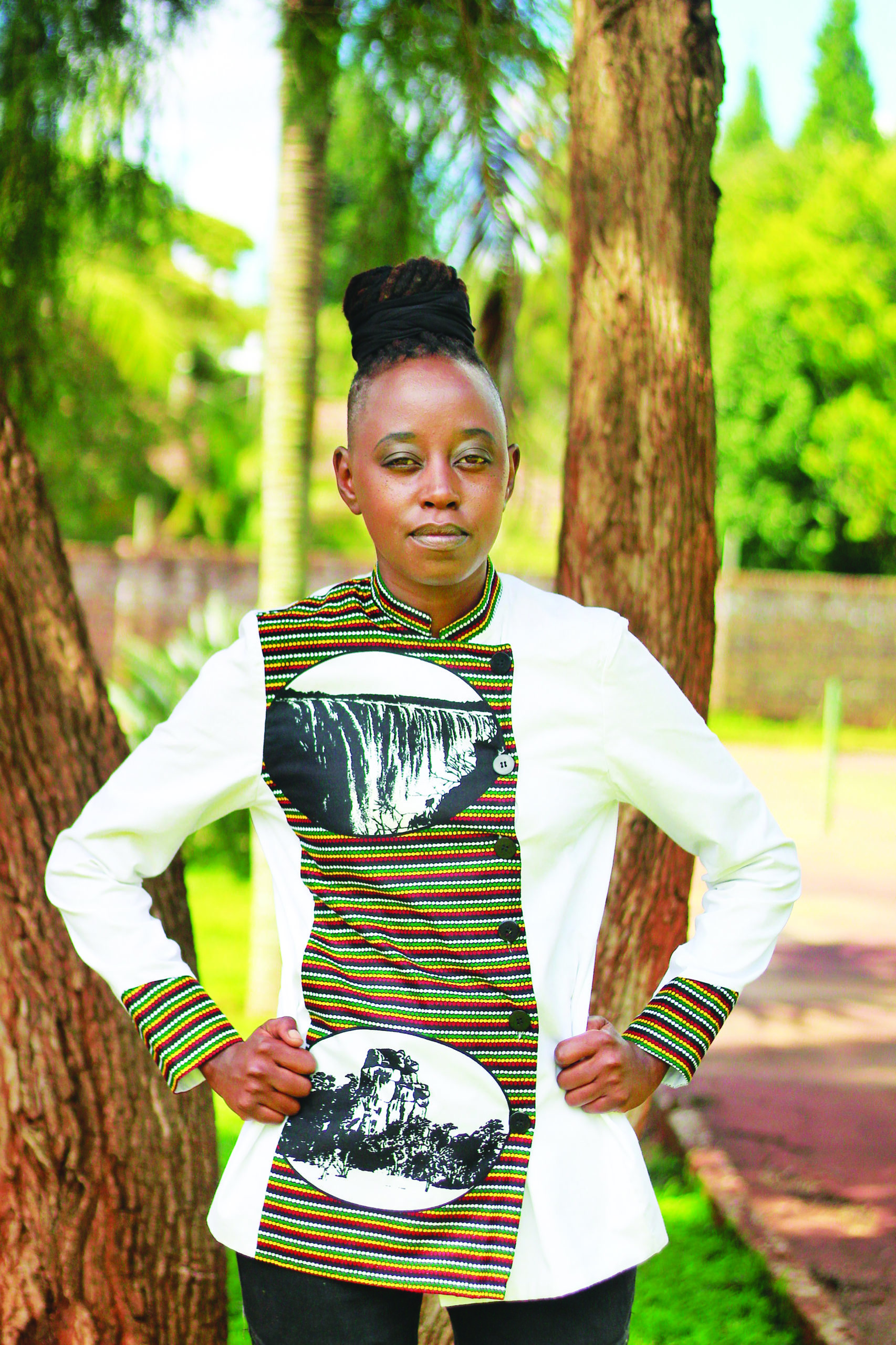Nicola Kavhu is serving up a new menu of realities and possibilities in the 21st century African diet, promoting healthy eating while respecting and protecting the creatures that share our planet.
BY ALASTAIR HAGGER
AFRICANS LOVE THEIR MEAT. AT LEAST that’s the reductive, persistent narrative, even when the data tells a more complicated story: according to the United Nations’ Food and Agriculture Organization (FAO), average meat consumption in African countries per capita is around 20kg annually, compared to approximately 70kg in South America, Europe and the United States, and a staggering 100kg or more in Australia. On a planet where the mass of animals raised for slaughter outweighs wildlife by a factor of 15 to 1, associated FAO data also reminds us of the environmental impact of these industries and the related threat to the ecosystems of developing countries: meat and dairy production now accounts for 14.5% of greenhouse gas emissions worldwide. One young African chef is serving up an appetizing alternative: a new menu of realities and possibilities in the 21st century African diet, a way of promoting healthy eating while respecting and protecting the creatures that share our world. Nicola Kavhu, aka Chef Cola, is the creator and owner of African Vegan on a Budget, a brand based in Zimbabwe and South Africa that “focuses on spreading the word on veganism through entrepreneurial projects, collaborations and content creation”.

A Zimbabwean raised in the heart of New York – “my palate danced when I was growing up!” – Cola then trained at the renowned PLANT café in Cape Town, South Africa, where she rose to become head chef before striking out on her own to create African Vegan on a Budget in 2016.
“The idea was to actively promote the reality that people can thrive on a healthy plant-based diet on a budget,” she says. “To prove that a nutritious plant-based meal could feed an average family for less. Over three years, I repeatedly showcased this by hosting dinners in Harare and Cape Town for twenty to thirty people, with three courses and dessert, on a budget of between two and three hundred US dollars. This became my business model. It is about unlearning and re-educating people, especially about their myths and beliefs when it comes to veganism.”
Loading...
The Instagram-nourished success of these suppers caught the attention of Damien Mander, founder of the International Anti-Poaching Foundation (IAPF), and its all-female vegan anti-poaching unit Akashinga (‘The Brave Ones’).
Cola and Mander subsequently established the Back to Black Roots Kitchen and Garden, which provides three vegan meals a day to over 170 rangers stationed in the IAPF camp in Nyamakati, Zimbabwe.
“So first day, walking into the kitchen, change was not really wanted,” Cola says. “But I didn’t give up. It took me about a year and a half to balance the reason why I was there as a trained chef, and the reason why I was there for them. Our job is to fuel the rangers so that they are able to do their job effectively. They prefer eating indigenous ingredients, so I made an effort to find out what ingredients are available in their community at that particular season, and made sure we incorporate that into their diet.” This patience and co-operative vision is beginning to pay dividends, and developing into a rubric that similar organizations might be encouraged to emulate.
“We have a lot of work to do yet, but we’re getting there,” she says. “I have a team of six chefs, all trained by African Vegan on a Budget on how to prepare plant-based nutritious meals. The project we are creating is a business model I feel you should follow if you are in the anti-poaching industry. It’s contradictory to go and protect animals in the bush the whole day and night and then come back to the camp and eat one.”
Like those of the bulk of the food service industry, her other ambitions have had to become adaptive and agile in this pandemic-ravaged economic climate.
“It’s changed my operations in ways I didn’t realize I would experience at this stage of my business,” she says.
Like those of the bulk of the food service industry, her other ambitions have had to become adaptive and agile in this pandemic-ravaged economic climate. “It’s changed my operations in ways I didn’t realize I would experience at this stage of my business,” she says.
This enforced reflection has also reinforced her determination to value and nurture the team that has joined her on this transformative journey.

“Operations and plans change every day. I’m literally on my toes, still trying to build a team, and take care of them,” she says. “So this pandemic has taught me to be selfless. In business! That’s so weird!”
Loading...
